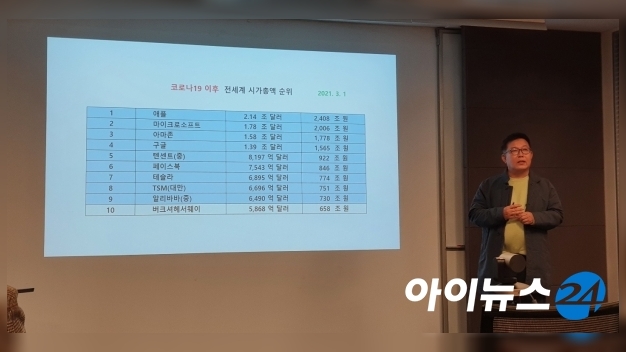[아이뉴스24 윤지혜 기자] “In order for the’Exit (return)’ to be activated in the domestic startup ecosystem,’Kakao Mafia’ and’People of Delivery Mafia’ must appear in Korea like the’PayPal Mafia’ in Silicon Valley of the United States.”
Soongsil University’s Graduate School of Small and Medium Business Professor Yoo Yong-sang said, “Exit must be activated for a virtuous cycle of the startup ecosystem” at the final briefing session of the’Startup Exit Ecosystem Strategic Research’ hosted by the Korea Startup Forum on the 3rd.

‘PayPal Mafia’ is a member of PayPal who establishes ventures or invests in startups with funds from the sale of PayPal on eBay. Representatives include Elon Musk Tesla CEO, Lead Offman Founder of LinkedIn, and Steve Chun, the founder of YouTube. They are exerting a positive influence on Silicon Valley in the US through business start-ups and venture investments.
In Korea, exit success cases such as Coupang, Elegant Brothers, and HyperConnect are following one after another, so’Entrepreneur (innovator)’ who succeeded in IPO and merger and acquisition (M&A) contributes to the startup ecosystem. It is an explanation that there should be a lot of it. This is expected to play an important role in changing domestic perceptions of negatively viewing the sale of foreign capital and listing on overseas stock markets.
Professor Yoo said, “Chairman Bum-soo Kim and Chairman Bong-jin Kim donate close to 6 trillion won of money, and using this as the basis of the startup ecosystem will help the startup cross the’Death Valley’, which is the entire section of sales.” He said, “It is also necessary to create a Hall of Fame for successful innovators through narrow doors and honor them.”
Some pointed out that the policy tone should be changed so that domestic startups can become’exicons’ that have succeeded in exiting beyond unicorns (unlisted companies with a corporate value of 1 trillion won or more). It is pointed out that there is a need for research on a system that tracks and manages the success of a startup that has received initial investments or exits, or an exit plan for a startup in the pre-unicorn stage.
In addition, it was suggested that a soft landing policy that partially eases and suspends various obligations from acquiring shares when a large company acquires a startup is necessary. Currently, if a large company acquires a stake in a startup over a certain size, various regulations such as prohibition of mutual investment and debt guarantee between affiliates, and prohibition of transactions by specially related persons will inevitably have no choice but to hesitate to M&A of startups.
The need to improve CVC (enterprise venture capital) regulations was also suggested. CVC has emerged as the’big hand’ of the startup ecosystem, so that about 30% of the world’s VC investment is made through CVC. In Korea, the Fair Trade Act last year, allowing large holding companies to establish CVCs, passed the National Assembly, but regulations remain, such as requiring CVCs to be established only in the form of a 100% subsidiary.
Seong-jin Choi, CEO of Cospo, said, “The language of large companies and startups is different, so the role of interpreter is necessary. That is a shareholder like CVC.” He added, “Start-up M&A can be activated only by activating intermediate organizations such as CVC by removing institutional restrictions.”
Reporter Yoon Ji-hye [email protected]
